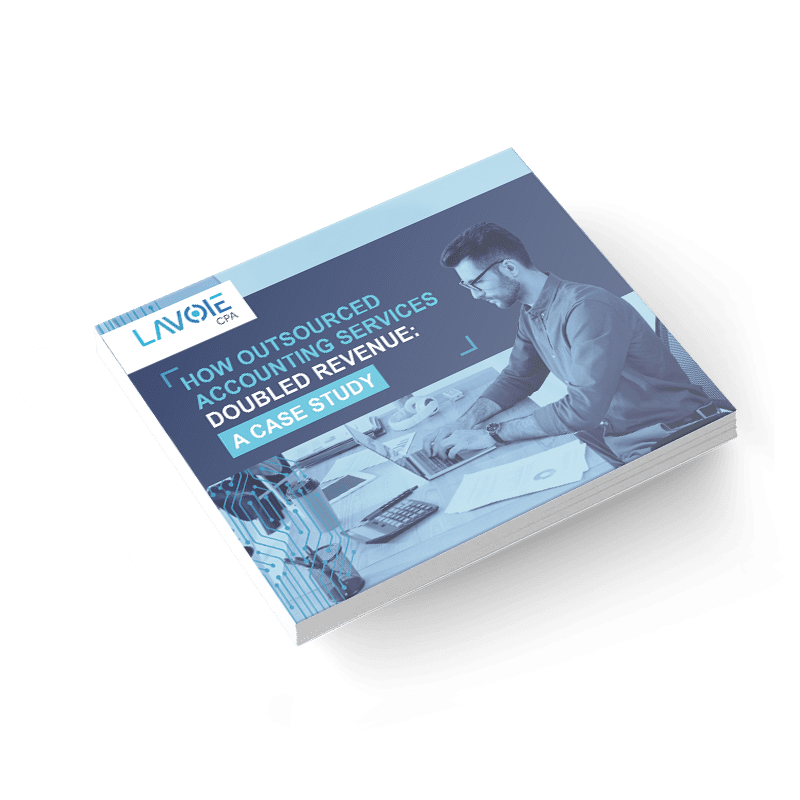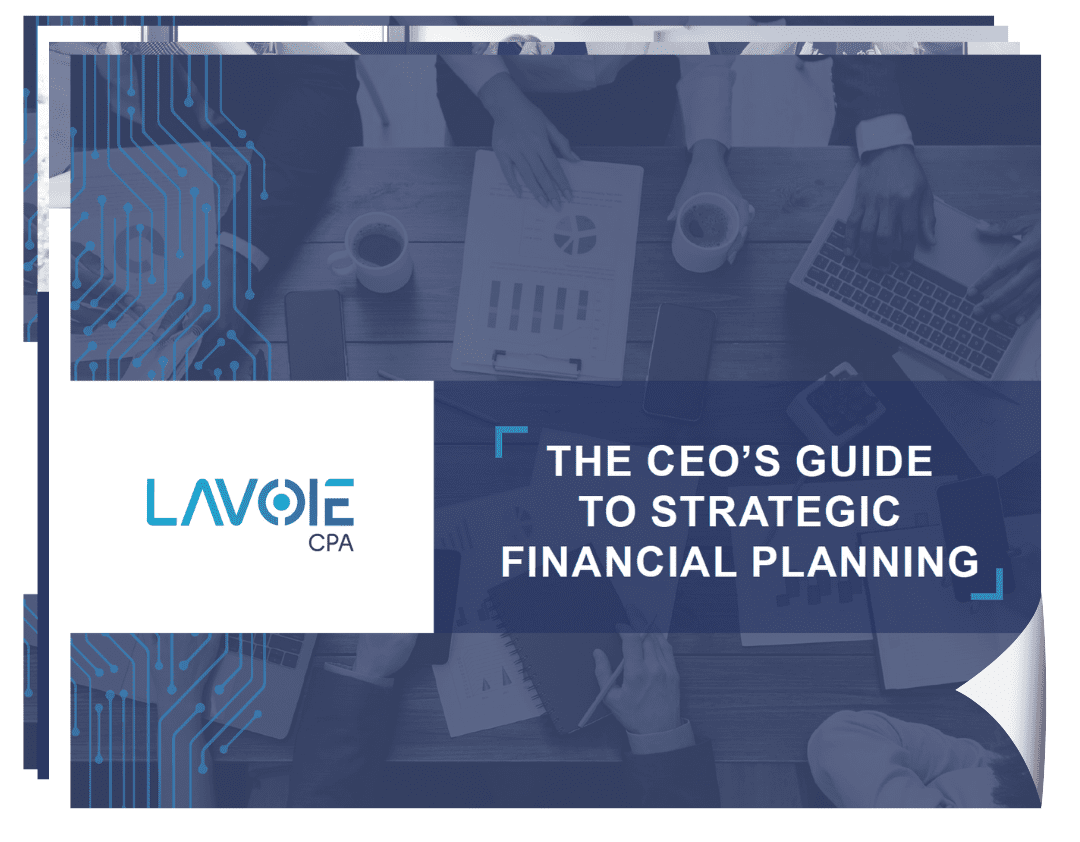
How Outsourced Accounting Benefits Your Private Equity Clients
Today, more than half of market private equity firms use an outsourced accounting partner, and for a good reason. Working with a financial operations management and outsourced accounting firm benefits both your firm and your clients.
Jump Ahead
In the sections below, we’ll explain how a financial planning and accounting firm can help you.
Instill Confidence in Your Investors
Investors like funding good ideas, but only if they know an experienced team will manage that good idea to its full potential.
Investors will be looking at how well your team works as individuals and as a group before trusting your firm to source, negotiate, monitor, and exit fund investments.
So, when meeting with potential investors, you want your team laser focused and ready to answer every question investors throw your way, like:
- How forward-thinking is your team on issues that impact private equity?
- How comfortable is the team managing a complex portfolio like mine?
- Describe the technology you use to implement proactive portfolio strategies.
- How quickly can the team produce high volumes of customized reports?
Your team’s biggest barriers to making a good impression?
Admin Distractions
If your team has to manage basic accounting tasks or stay on top of regulation changes, their focus will be split between essential and non-essential business functions.
An unfocused team has a greater risk of delivering reactive and lackluster strategies or accruing costly regulator penalties.
Disorganization
When your team doesn’t have a central platform to store, view, and extract financial data, it’s easy for teams to mistakenly (and unknowingly) work off of inaccurate or dated information. Without a centralized location to store client data, your team is more likely to stumble over unnecessary redundancies and inefficiencies.
By outsourcing your firm’s financial operation management and accounting, you let your fund admins focus on improving investment strategies, reports, and client dashboards – tasks that have a direct impact on the business.
Furthermore, your team will all be able to leverage accurate data, the bedrock of effective and proactive investment strategies.
Preserve Your Reputation to Attract Investors
As private equity firms grow, it gets more difficult to maintain a high growth rate. But a high growth rate is exactly what attracts investors.
In response, private equity firms are eager to find efficiencies and cost savings that don’t impact core business functions.
Outsourcing your financial and accounting processes is an excellent way for firms to reduce overhead costs while maintaining transparency and accuracy. Plus, private equity firms can still maintain management fees this way.
Additionally, you can retain a penalty-free track record by relying on your financial partner to monitor regulatory changes and how they impact your business. Plus, your financial partner can make sure your firm is always financial audit-ready.
Broaden Your Proficiency
The very best outsourced accounting firms are the ones that can explain the meaning behind the numbers.
At Lavoie, we go a step further by also identifying:
- The health status of all your client portfolios
- New areas of revenue
- Areas of growth opportunity
- Areas of inefficiency
- Important KPIs in your industry
- Future cash-flow projects to help you plan your next steps
Think of a company like Lavoie as an extension of your team that you can tap when, for example, you don’t understand why cash flow is low when the business is performing. Your financial partner has both the time and experience to investigate the problem and deliver a list of actionable next steps.
Finally, there is a degree of credibility you can achieve with investors when they know that a professional team is overseeing all the nitty-gritty details of their investment. This also reassures investors that your team’s focus is on their funds.
Free Up Cash Flow to Reinvest in Teams & Tools
There is a multitude of ways to enhance the investor experience at your firm, but very few of them are free.
An important benefit of partnering with an outsourced financial operations management and accounting firm is that it can free up more cash flow. This allows you to reinvest in other things such as team training, hiring new team members, or purchasing industry-leading tools.
When private equity firms experience rapid growth, they are suddenly inundated with heavy cash flow. A partner like Lavoie ensures that you can manage those funds efficiently.
Your financial partner can also manage your accounts receivable, allowing your company to collect payments faster or identify clients who are behind with payments.
They also have the time to carefully review invoices before they’re paid to check for any inaccuracies that can cost you.
The biggest cost savings come from not having to staff an in-house accounting team. With a financial partner, you only pay for additional financial support when you need it.
Meet Expectations of Digital-Savvy Investors & Regulators
Today’s most successful firms leverage the speed and accuracy of financial software to deliver superior client experiences and abide by current regulations.
All client investors expect financial transparency and accuracy and – with the emergence of technology – they expect them at a moment’s notice.
The Securities and Exchange Commission (SEC) also expects greater transparency and accuracy. The surge in private investments, plus the fact that private companies aren’t required to file information with local regulators, drew enough attention for the SEC to tighten regulations.
Today, regulators are more likely to request a report on performance or economic activity. All signs point to more regulations, re-emphasizing the importance of accessing financial information at a moment’s notice.
Financial software could easily alleviate these issues — but the software can’t do all the work by itself. Someone from your firm has to research and select the right product, learn the tool, and train other employees.
Realistically, private investors do not have enough time to do this, but the good news is that they don’t have to. Not when they partner with a financial operations management and accounting firm.
At Lavoie, for example, we make software recommendations to our clients based on the functionalities they need. We are proficient with several programs that satisfy a range of accounting needs.
We also:
- Set up the software for you
- Create custom dashboards for your clients
- Show you how to maximize the tool in ways that add value to your strategy
In Summary
Private equity firms of all sizes can glean deeper insights at a faster pace and with greater accuracy when they have the support of a financial operations management and an outsourced accounting firm.
Firms like Lavoie can reduce operational costs, streamline inefficiencies, and introduce your team to the right software. The resulting improvements in accuracy, communication, and transparency will only enhance the client experience at your firm.
If you’re a private equity firm looking for financial support, contact Lavoie today!







